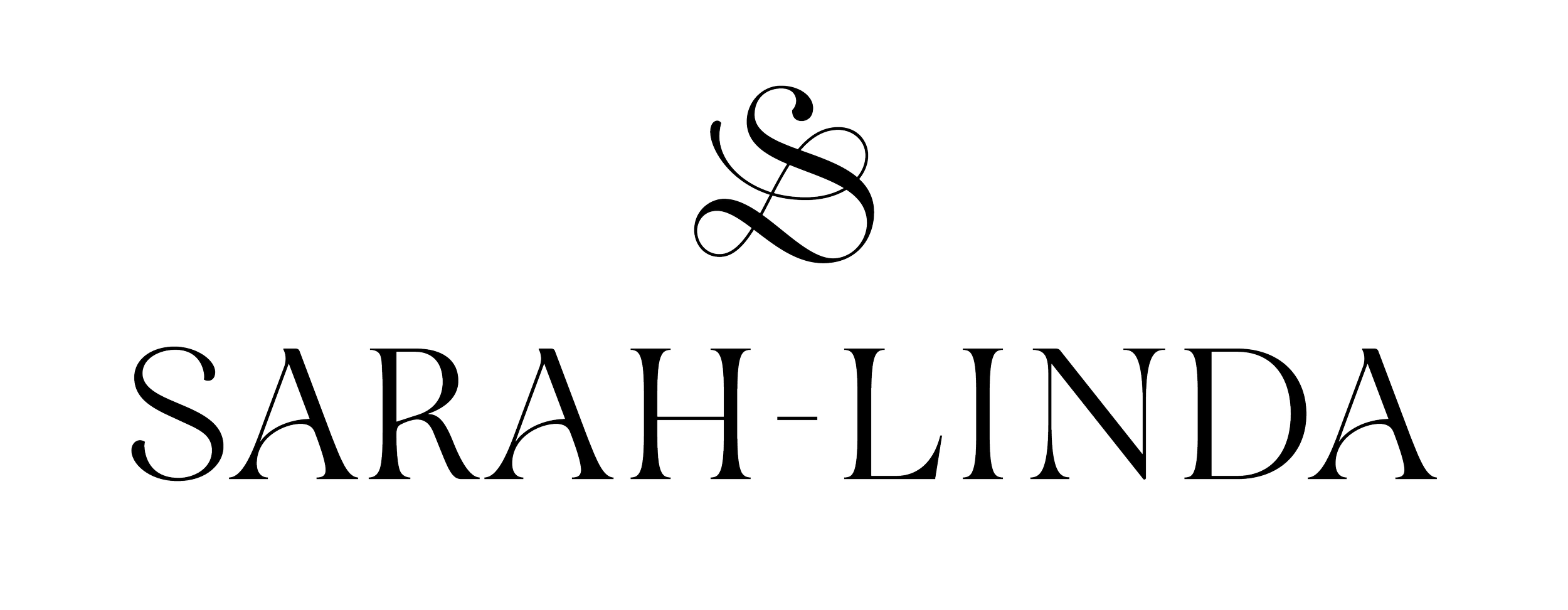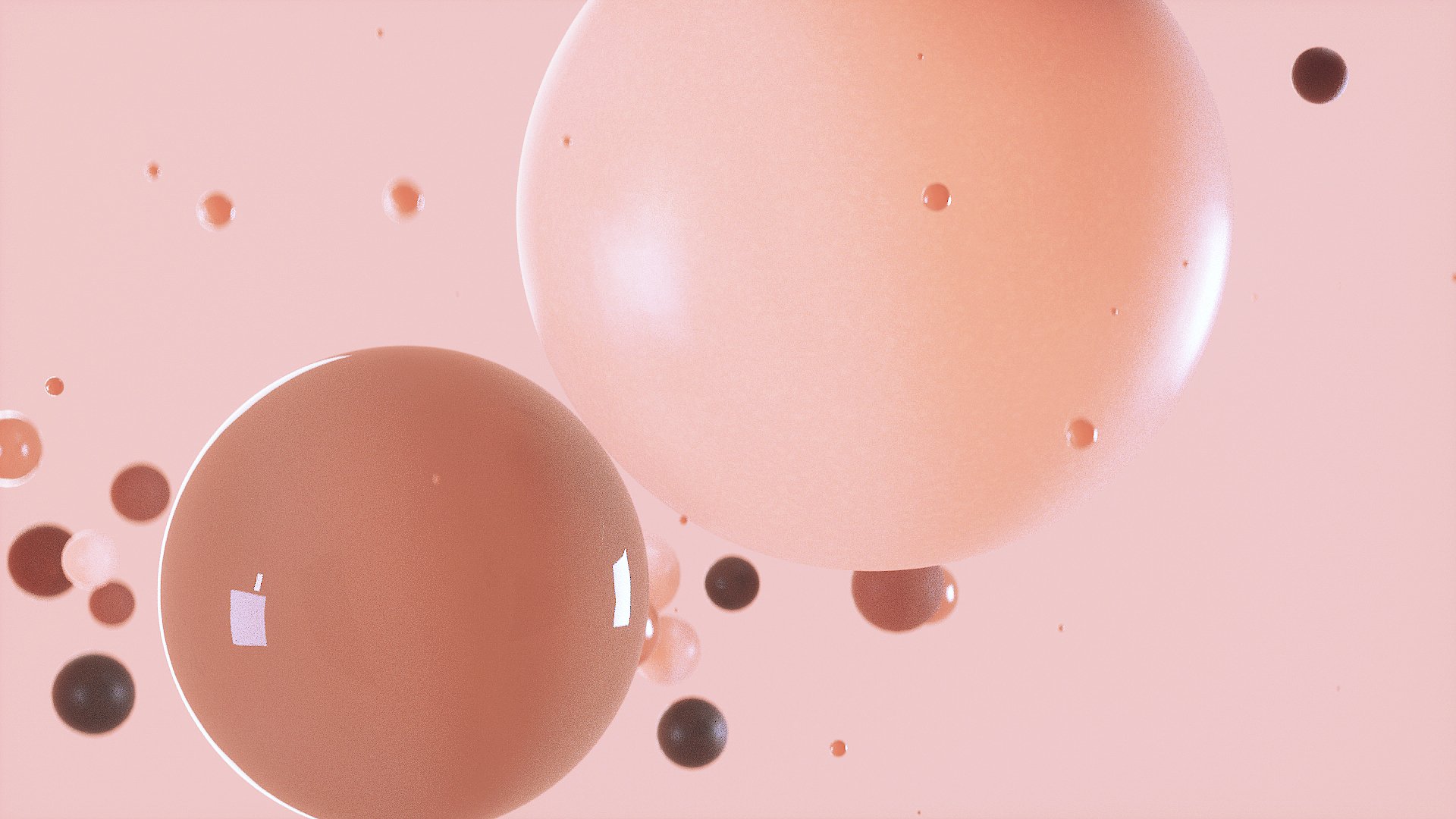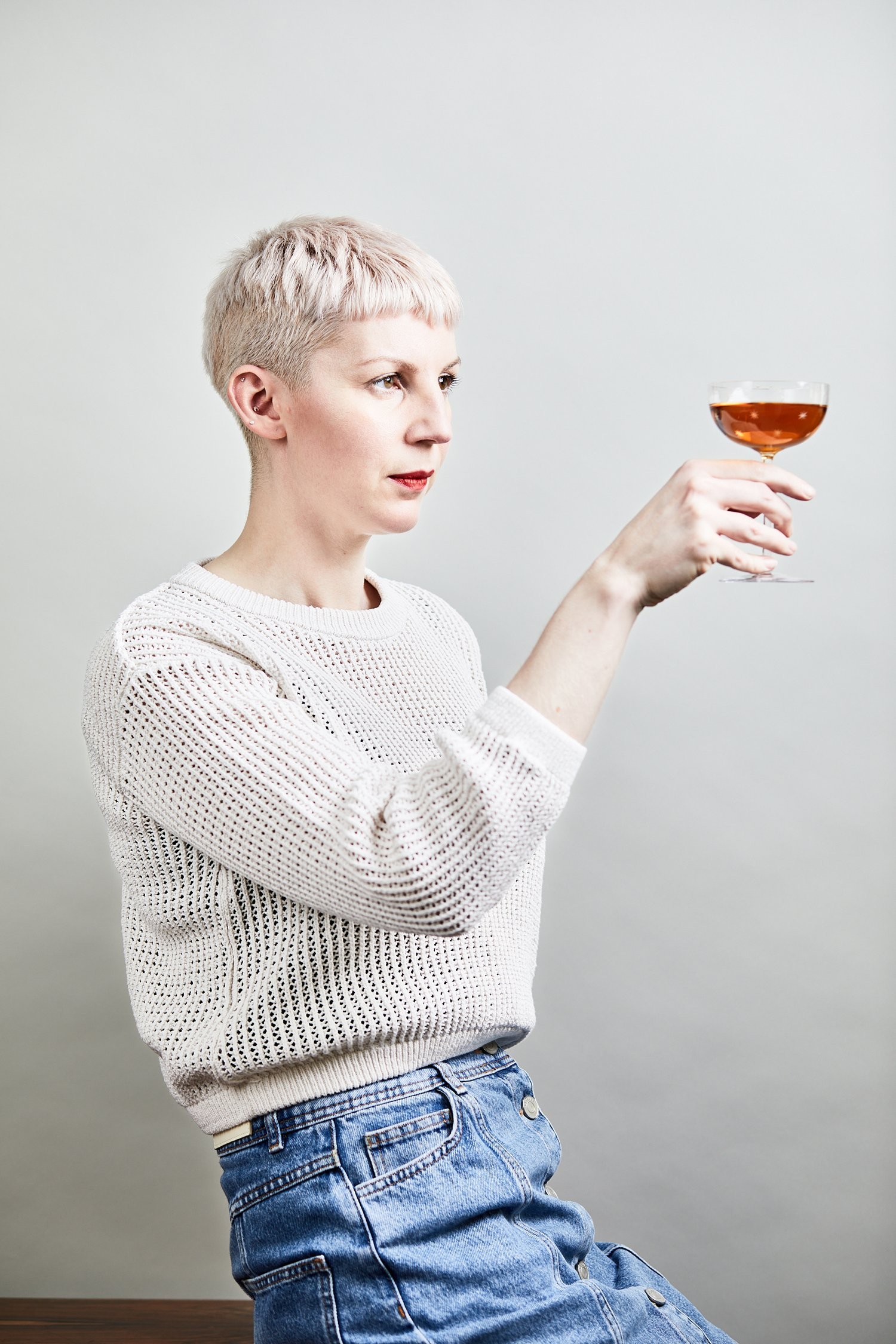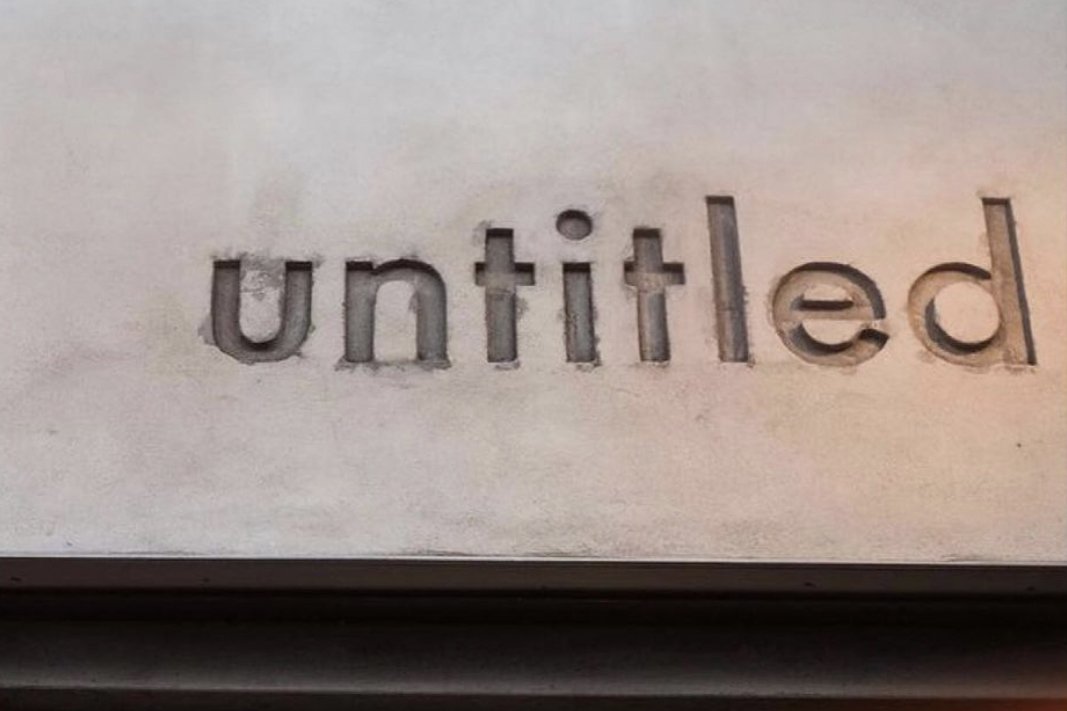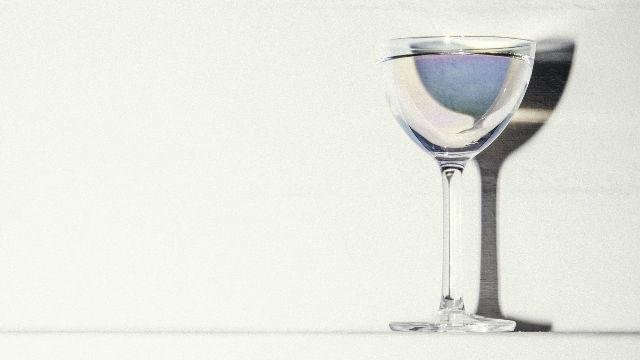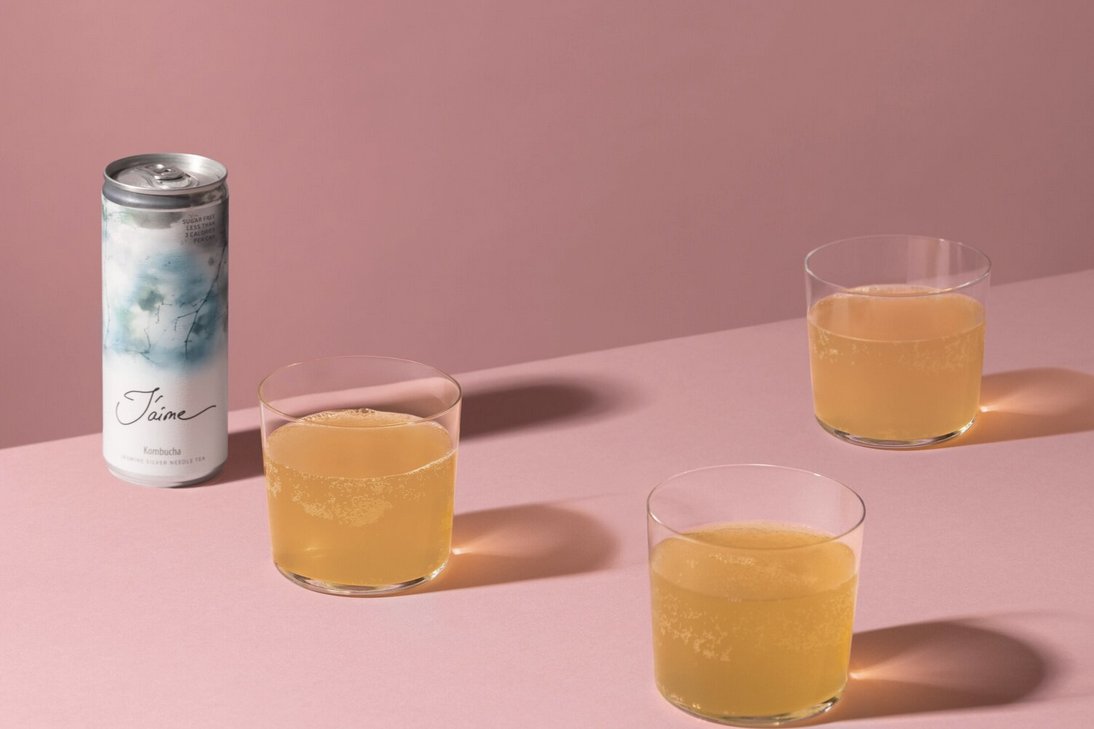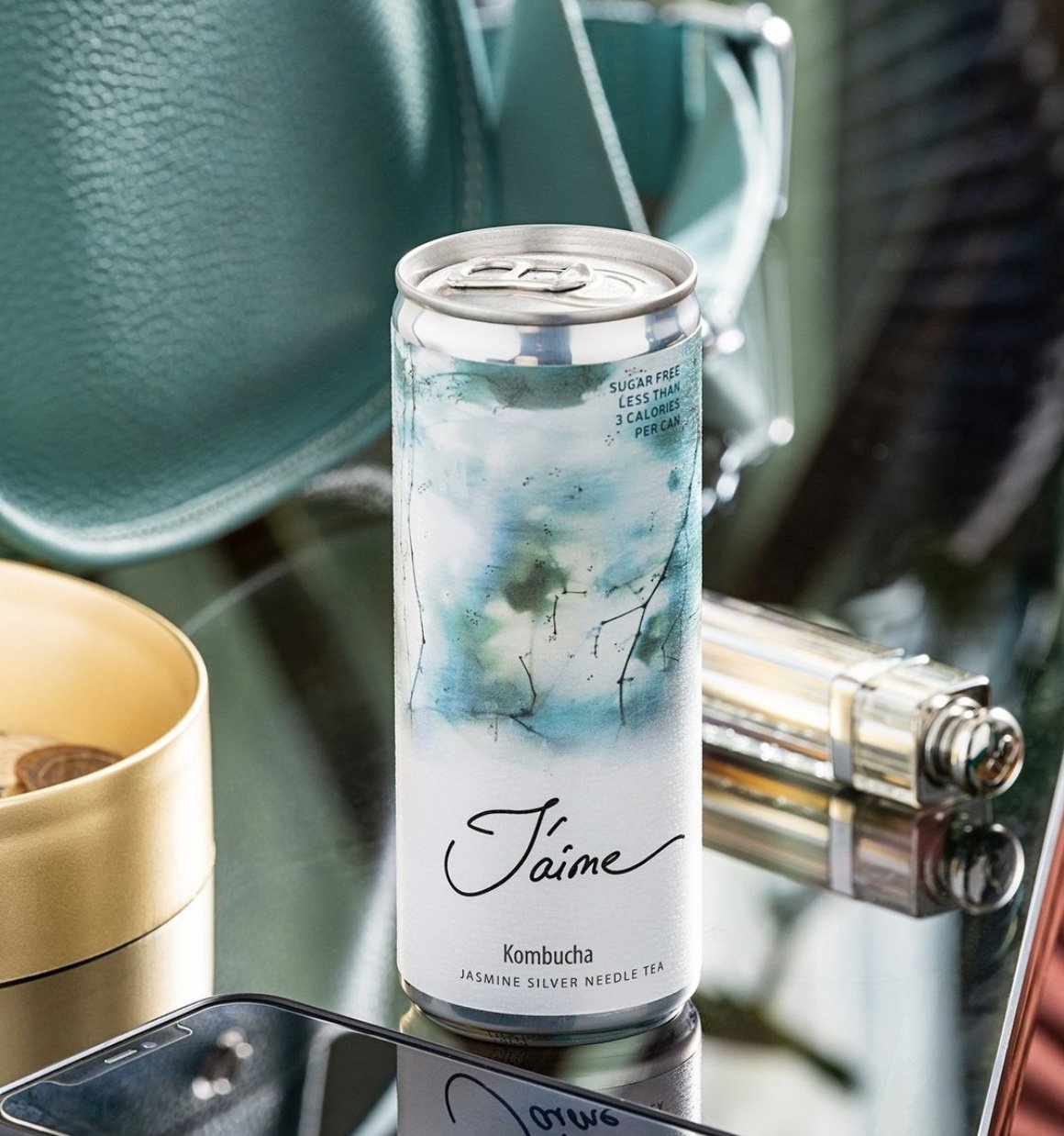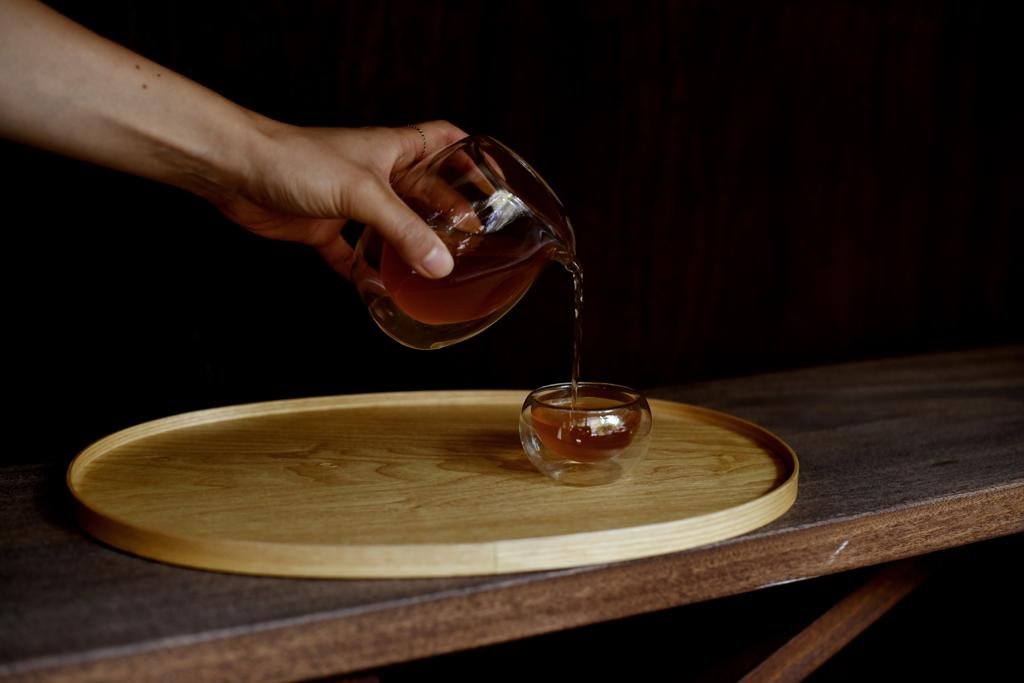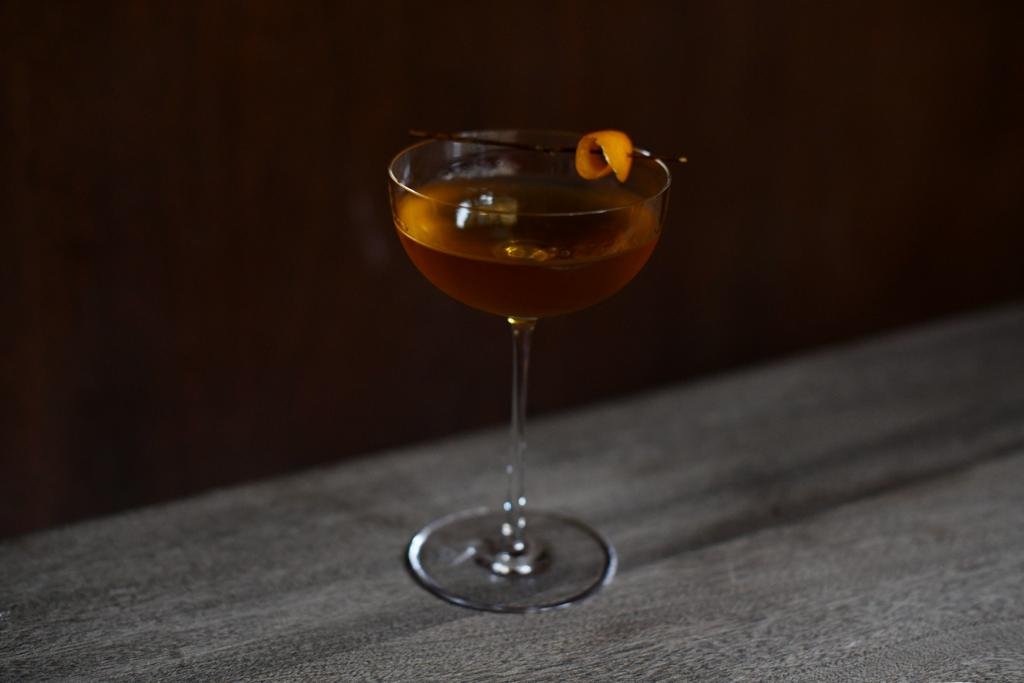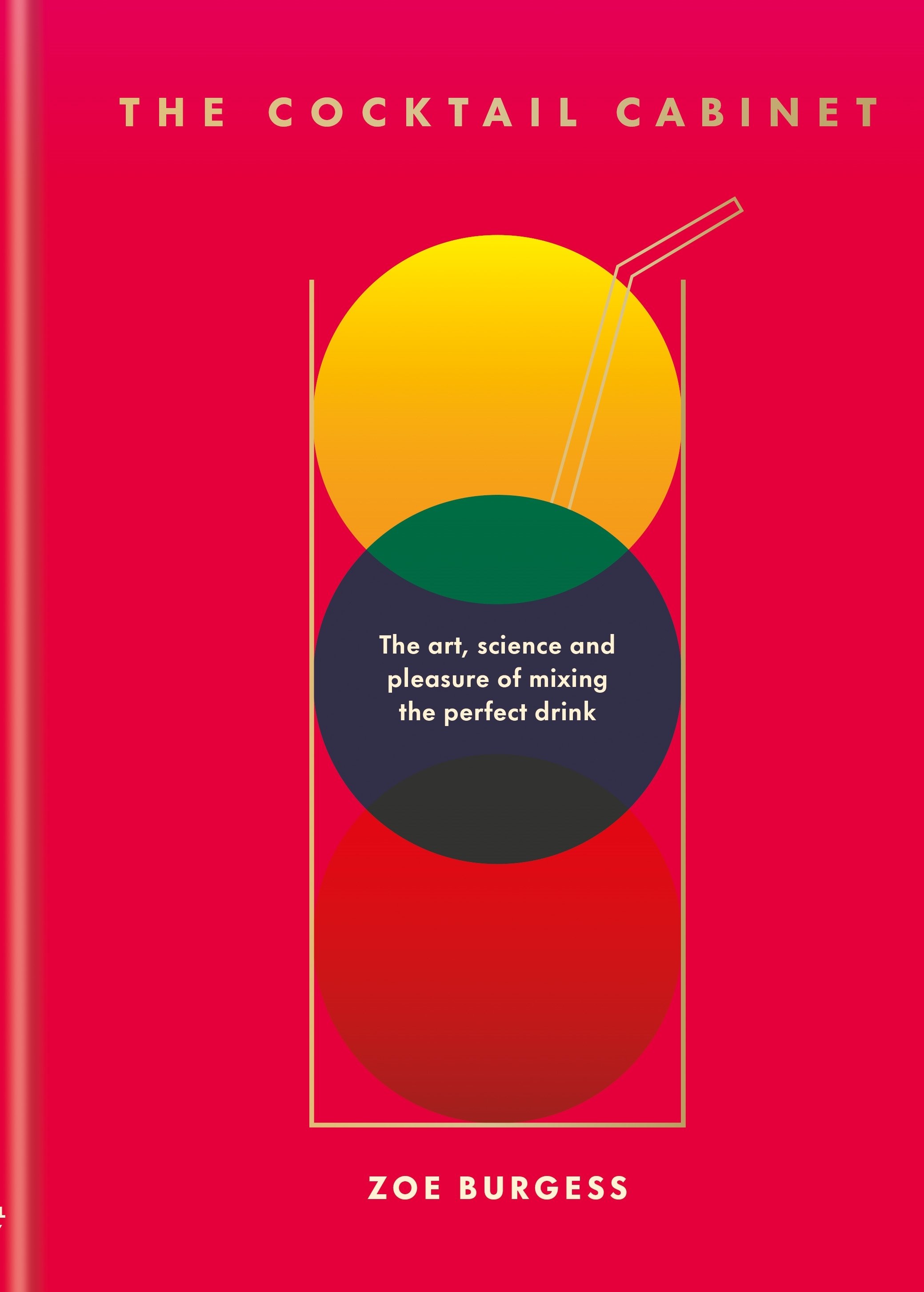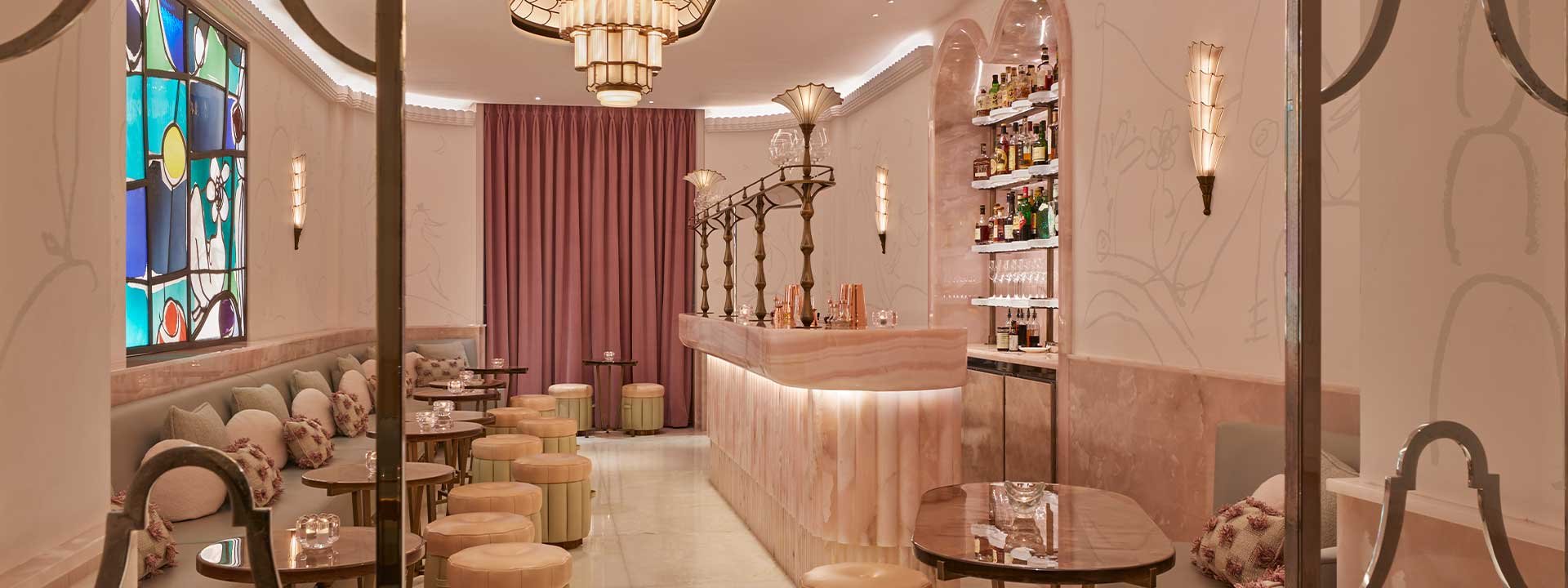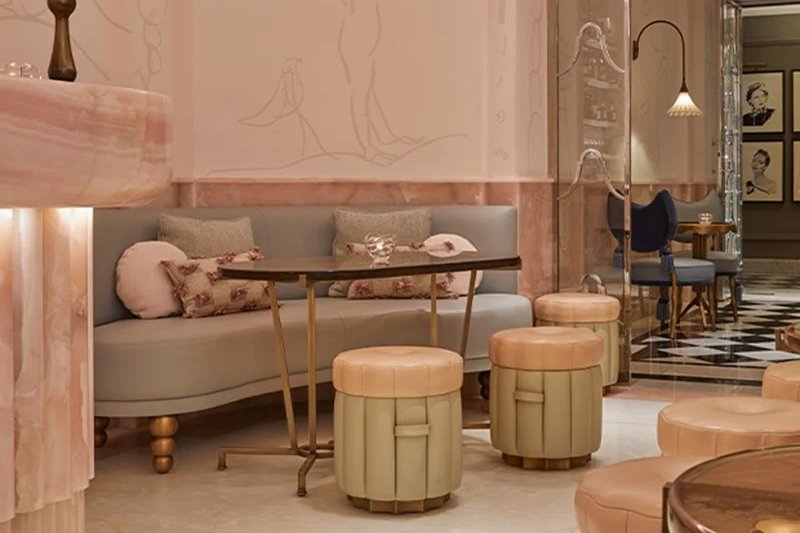Telling stories through liquid flavor with Zoe Burgess
We’re introducing our Redefining Luxury interview series. Through this series, we aim to explore a new definition of luxury. We talk with entrepreneurs, organizations and passionate individuals who are creating luxurious and pleasurable yet thoughtful products, services and content. In search of joy, marvel and inspiration. We are kicking off with drinks consultant Zoe Burgess.
Zoe Burgess, founder of London based drinks consultancy, Atelier PIP is one of the UK’s most renowned flavor experts and founding partner of one of East London’s most unique and creative cocktail bars, Untitled.
With a career spanning over 10 years, she developed groundbreaking cocktail menus for giants of the hospitality industry including internationally renowned Michelin-starred chef Heston Blumenthal and has collaborated with some of the world’s most respected sensory scientists, including Oxford University’s Charles Spence.
Her passion is pushing the boundaries within the sensory- and flavor-led sectors to help improve consumers’ drinking experience. She continues to work with Heston Blumenthal’s creative team as well as clients such as Soma and be-oom tea rooms. 2022 will also see the release of her debut cocktail book, “The Cocktail Cabinet: The art, science and pleasure of mixing the perfect drink” which will be published 1 September 2022.
Zoe and I met through the preparation of an event for the Fat Duck Group where Zoe did the drinks menu and the bites were served in our tableware. A few weeks ago, we had a chance to catch up over Zoom. We talked about her path to cocktails, projects she’s been working on, her creative process, storytelling through liquid flavor and the meaning of rituals.
From chocolate to cocktails
Originally, Zoe comes from Manchester, although London has been her home for 16 years now. She moved down there to go to Chelsea College of Art. With a lot of training on attention to detail and seeing the possibility in anything, Zoe learned to be incredibly self-driven.
After finishing her degree, she started working for a small chocolatier, one of the first companies to make chocolate from bean to bar. This is where Zoe realized that she had a really good palate and a real passion for flavor. “I’d always love food and drink. It was always what I was thinking about every minute of every day, but I just did not realize I had a kind of skill in doing it.“
While working there, she had insight into the process, design, and flavor development. She was quite involved and also picked up some management skills on the way. Zoe ended up opening several concessions for them in Selfridges and a few department stores, including a store opening in Notting Hill that was actually in a barbershop. “A lot of the hairdressers here have alcohol licenses, so the thought was to open a cafe. It was a large shop and they wanted to serve some cocktails. That was kind of my route into the world of cocktails. I fell in love with 69 Colebrooke Row and took it from there.”
“After my first experience at 69 Colebrooke Row it became clear to me that this is my world, and I have to find a way to enter this. I knew I really want to do this. I told the team that I’d do anything, I don’t care, as long as I’m learning something.”
Zoe ended up doing a stage with the Colebrooke team. As they were expanding, they needed someone to look after the production of the ingredients in the research development kitchen, the Drinks Factory. It was a case of being at “the right place at the right time.”
“I could see the potential in learning and creating these really unique and kind of all-encompassing experiences with liquid and I got on really well, as my mentor had a fine art background, so we were able to communicate in a very specific way.”
While working at the Drinks Factory for 10 years, Zoe had the chance to work with Charles Spence on some of his “gastrophysics” research and got to make the drinks menu for Dinner by Heston Melborne, which is how she got to know the Heston Blumenthal team. She also worked with various brands, such as Pernod Ricard, spirit brands, perfumers, and opened Untitled Bar down in East London as a co-founder.
Untitled Bar and the process of creation
“With Untitled, we were really inspired by Andy Warhols Silver Factory. I find Andy Warhol incredibly intriguing and the fascinating thing about the Silver Factory was that, in a sense, it was just a space where people could go and be themselves and he just happened to have documented it. Whether or not he instigated things, that’s another story, but he really embraced the outsiders and the people who just wanted to be creative and this was their space. So the idea with Untitled was to do exactly that and take that line. It was never meant to be an Andy Warhol-themed bar, but it was always about allowing people to be who they are. And giving them a space to connect.”
They built a huge concrete communal table, which was quite uncommon at the time, and took away the pedestal of a bartender behind the bar, creating this level of playing ground and making the guests, not the bartender, the most important people in the room. Pushing the boundaries, they decided to not list the spirits in the cocktail menu originally and listed only the ingredients instead. Most people choose their drinks based on their favorite spirit, but initially, Zoe and the Untitled team felt that it should be about the overall flavor.
“I’m fascinated by how you can communicate through flavor and it’s a very particular thing with liquid. When you have a plate of food, there are so many interchangeable elements that you can work with as you eat it and you can personalize it. But when it comes to liquid, it’s one liquid and one glass, normally. And you really have to trust or take a good read on the person you are making the drink for. Perfume was always a huge inspiration. You can transport people to a different space via a cocktail. You can make someone feel uber glamorous or like they’re in a dive bar. And that was always what fascinated me about drinks.”
“I’m very influenced by my mood and the narrative that you’re trying to create and there’s a huge parallel with perfume. When you put on perfume it’s about you and feeling a certain way or portraying a certain side, or tapping into a season and I think for me personally when I’m making drinks, a lot of it comes from the tactility of the drink. How do I feel when I drink this drink? Will I feel happy? At what moment of the night am I drinking it? Is it the start, the middle or the end? Is it something that needs to stimulate me in a certain way? These are not questions that I outright ask myself, but they’re just always there and it helps me to think this is a “martini moment”. If I want to work with these flavors and have them communicate a certain tonality, then this drink needs to be dry and this drink needs to be sour and then I kind of feed that to the decision whether it’s a Martini or it’s a Collins. Champagne is a great example. We already have so many associations and connotations with it. When you drink or order a glass of champagne, you’re celebrating something. So you tap into that. What if I want to give you the most amazing moment of celebration, what would I do to that liquid?”
“There was a drink I created at Untitled that is called “Snow” and the idea was to try to capture the moment when you’re a kid and you’re outside and it starts snowing and you kind of run around with your tongue out and you catch a snowflake on your tongue.”
j’aime kombucha and rituals
Over the course of the last few years, Zoe launched a kombucha project, J’aime Drinks, with Martina Angelova who’s always had a passion for quality non-alcoholic drinks. Since a lot of the kombuchas out there have a lot of sugar or sweetener in them, they aimed to explore producing kombucha that has no sugar. They found it counterintuitive to add a ton of sugar to a drink that you’d consume for the probiotics and health benefits.
They were both quite passionate about creating a drink that was healthy and while also helping people have a moment to enjoy it without having to think about it too much. “We focused our attention on using high-quality teas in order to achieve a really great structure in the liquid and reduce the acidity without having to add sugar. It was a balancing act of working with those ingredients to get the best out of them.”
Over the course of developing kombuchas for J’aime, Zoe became intrigued by the thought process behind nonalcoholic work that is so different from extracting flavor by using alcohol. She aims to explore nonalcoholics more in the future.
“I think the other thing that I’m fascinated by and really want to pursue is this idea of ritual. I think that taps into the idea of value and why we value things, including our time. And it crosses over with that nonalcoholic world. A lot of things that we do in our lives are more about ritual than they are about what it is that we’re consuming in a sense. I mean coffee’s kind of shifted it, but a lot of people still wake up in the morning, don’t even think about it and the first thing they go to do is coffee. And I think there’s potentially something so nice to explore in that world of the ritual, as we’re trying to become a bit more aware of what we consume or where we consume it and how satisfying it is. I think a lot of that will come down to what you actually hold in your hand when you consume these things versus what’s in the glass.”
Atelier Pip and becoming an author
“Tea is such a beautiful product. I was really lucky to work with a wonderful lady called Sooji who runs Be-oom tea rooms. She’s Korean and I think she’s the only Korean tea room in Europe. She goes to tea farms, selects the teas, and presents them via her shop and the flavor quality is just something unbelievable. It’s something I’ve never tasted before.”
In 2019, Zoe founded her own independent flavor consultancy, Atelier Pip.
One of the projects was creating a selection of cocktails for Sooji to use at events and it certainly wasn’t an easy task to add alcohol into the mix while keeping true to the tea. It was just about simplicity and honesty and balancing the ingredients against the two, using the best extraction method, cold brews or hot brews, and picking very specific ingredients to work with.
“There was a very beautiful cognac by Fanny Fougerat Cognac D’Auteur. It’s a French female producer. Last time I checked she has 3 cognacs, and they’re all about the Terroir, they’re all produced in very specific ways, and… we just spent a little bit of time being specific about finding the right products to match with these teas and kind of get the ethos correct.”
When the pandamic hit, the long lockdown period has brought along a lot of mental decompression time and Zoe was no exception. As a consequence of the world, she had a chance to go back to the basics, reflect a lot on why she does what she does, what she wants to contribute towards, and why she came into the world of cocktails in the first place. It was at this moment that Zoe’s idea for her first book, The Cocktail Cabinet: The art, science and pleasure of mixing the perfect drink, struck.“There was a lot of thinking during covid, to be honest. It was difficult for a lot of people, but I realized that there was an opportunity and that opportunity was time. We have so little time and especially I think in the creative realm and you forget the value of space and just to be able to mentally decompress. I decided to carry on with Atelier Pip and just thought about how I would evolve it. Through that, I came up with the idea for a book.”
Zoe’s book demystify cocktails at home.“I’ve felt that a lot of consumers still don’t understand how cocktails work. Or they feel it’s quite an expensive thing to do at home because you have quite a lot of different ingredients, you might not know if you’ll like the drink in advance and it’s a bit of a risk. You spend all of that money, and half of the products stay on the shelf and just get dusty. I wanted to try and find a way to demystify the structure of cocktails and build a better understanding of what cocktails are and why people like what they like and what they can do with that knowledge. Explore the drinks world and really maximize on the products that they’ve got at home, so if you have one bottle of gin you really know what you can do with it, you know?”
Growing up in Manchester, Zoe values baseline ingredients and is all about finding the best way forward and using the potential of each product. Luxurious items are not to be taken for granted.
Around Christmas time during the lockdown, Zoe lost her sense of taste and smell due to covid. Only for two days, but obviously, it’s been a cause of major concern for her. “I had a really interesting moment, I never felt so peaceful in my life, because I realized that I’m constantly smelling things and it’s constantly occupying space in my brain and it was just nice to not have that. Now, I can see flavors I couldn’t see before. I studied sculpture, so the way I understand flavor is in 3D and there were things that I was picking up and I could see how parts were fitting together and I just had this moment, you know, how no one’s talking about how we didn’t really stimulate our palates in the same way for nearly 2 years. And you do lose it, you know? There’s no way you can keep the quality of your palate stable if you’re not eating and drinking and tasting in that analytical way.”
“The one thing I really want to keep doing now is just making drinks. I’m now on this real path of discovering new things to taste and experience and I keep on building my palate because it suddenly becomes so exciting. I guess it’s like when you start your career and suddenly something clicks and the hours that you put into crafting something you suddenly get that muscle memory and you do that automatically. No matter what happens after the end of this year, I’ll still be tasting and making a million interesting things on the side (laughs).”
Definition of true luxury
“For me, true luxury is when I go into a space and I can sense the history that is embraced in the space”
“It taps into some sort of aspirational qualities that probably were instilled in me growing up. If I walk into Claridge’s in London, I change how I walk without even realizing it. That space is just so beautiful and so many interesting people have walked through there and there are so many interesting stories in that space. I kind of just love being in there and soaking up the whole experience. To me that is luxury. And I think it’s also because there is so much history behind Claridge’s. It takes time for those spaces to exist, so it’s not just about drinking the most expensive champagne. It’s the sense of heritage in those types of special places which becomes almost tangible to me – I can feel and smell it. I find that quite luxurious too.”
